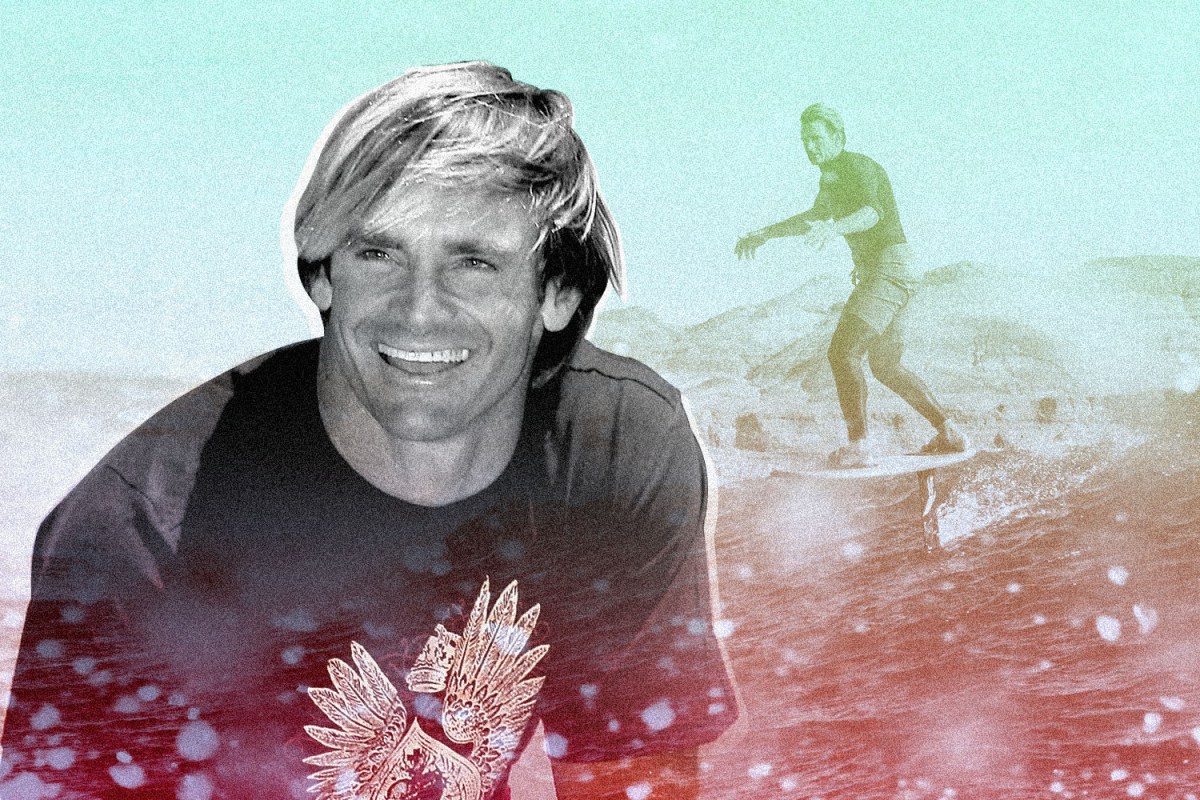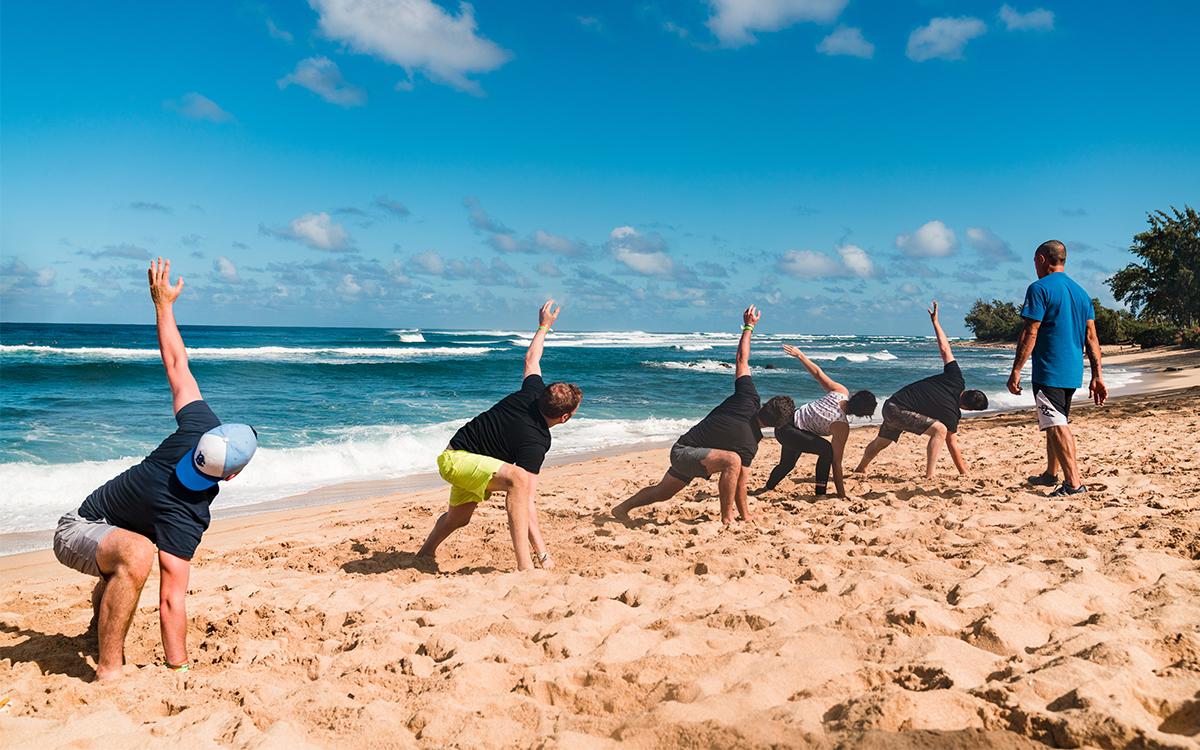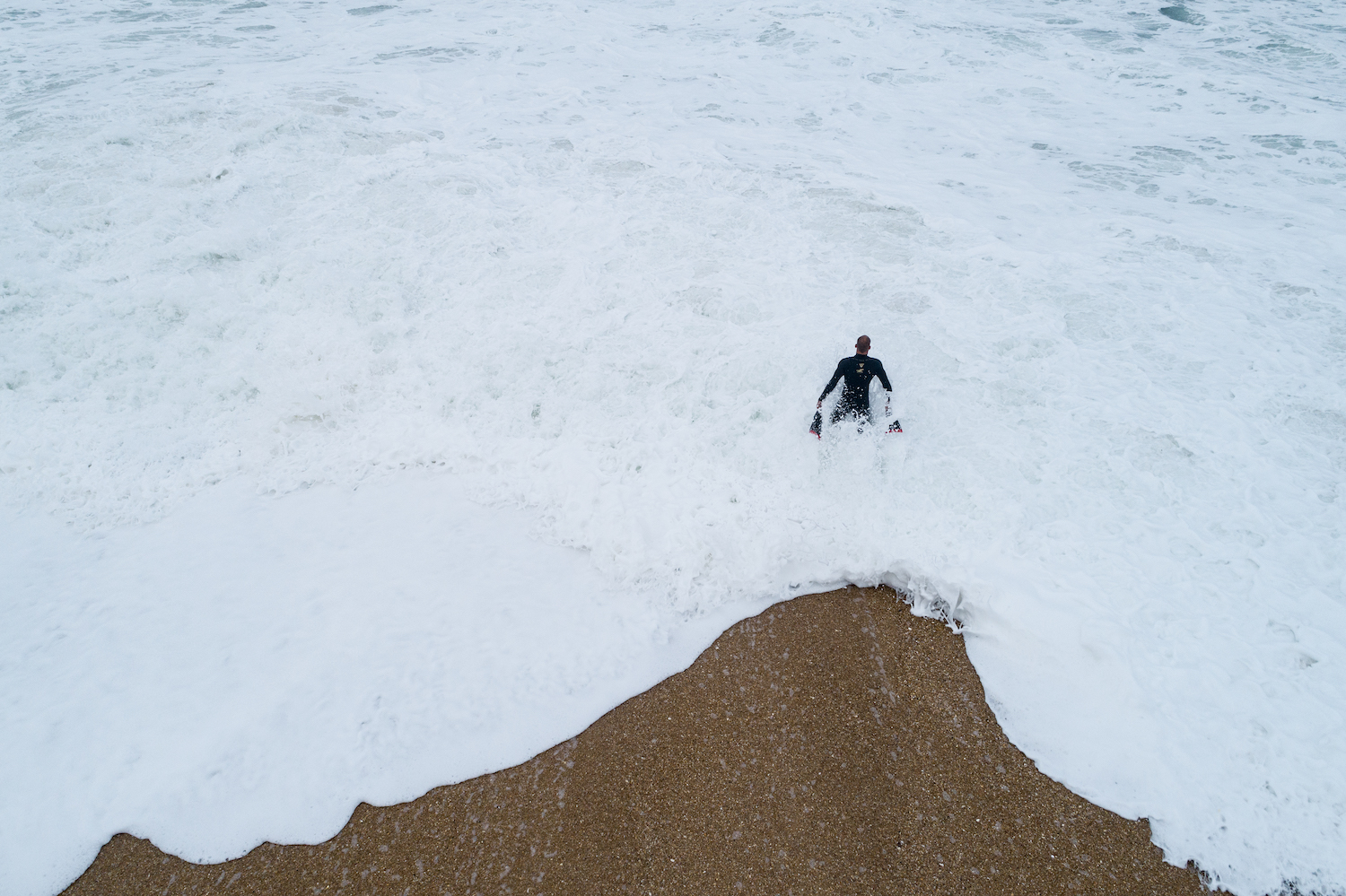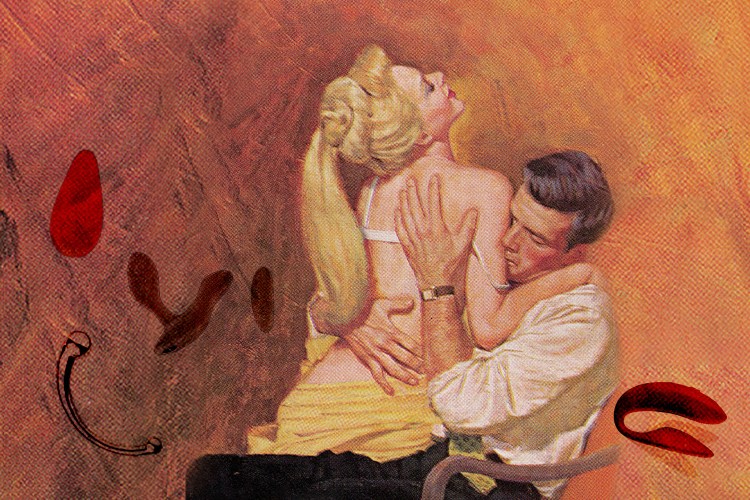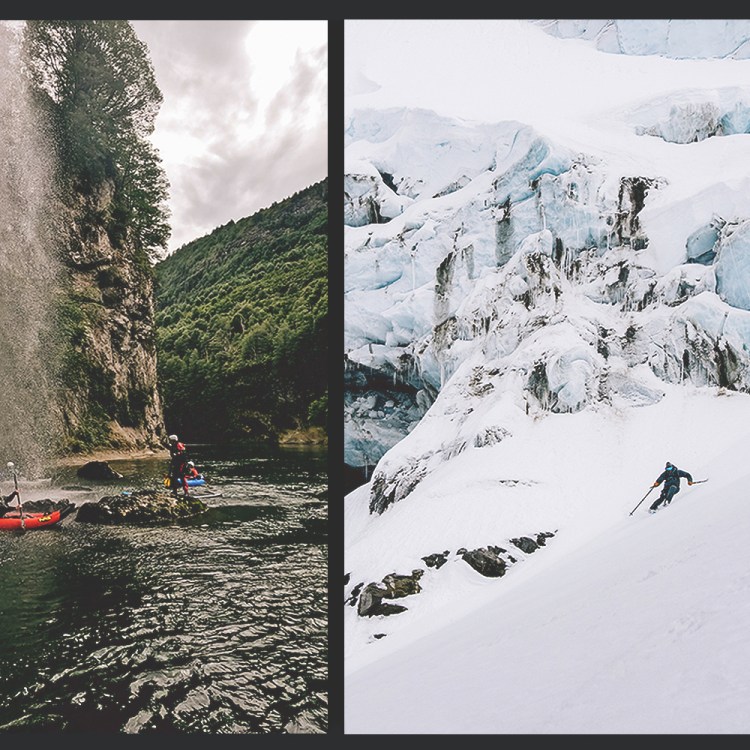Welcome back to “The World According To …”, a series in which we solicit advice from people who are in a position to give it. Perhaps the most recognizable surfer in the world, Laird Hamilton has likely ridden more big waves than any person alive. He’s an icon of the sport, and a pioneer of the once controversial tow-in method for catching waves too big, too heavy, too gnarly to tame using only human power.
Now 56, Hamilton is no éminence grise. He still braves the seven seas in search of the biggest, longest, fastest waves … and rides them on a foilboard — a technology Hamilton helped innovate. Back on dry land, the surfer runs his own brand of coffees and creamers, as well as a line of surf-inspired clothing that also bears his name.
This August 17 marks the 20th anniversary of his famed Millennium Wave ride at Teahupoo, Tahiti that changed the game and ushered in staggering new possibilities in the realm of big wave surfing. We caught up with Hamilton on the phone from his home in Malibu, California, where he, his wife, Gabrielle Reece, and three daughters have been weathering the COVID-19 storm, to chat about his storied ride’s place in the surfing canon, the energy he derives from fear, the threat our oceans face from pollution and what might be the greatest curse word we’ve ever heard.
What was it that first drew you to surfing?
Probably fear. I think that when I was little kid, you know how there’s certain little kids that like getting scared. I was drawn to it because there was something scary about it.
And you liked being scared, and that gave you some sort of energy or feeling?
Yeah, it gave me a feeling, probably one of the more intense ones we get actually. You get that jolt of adrenaline and epinephrine, endorphin, whatever, just whatever chemicals the body produces to give you heightened awareness, heightened alertness. I think that’s where a lot of the intensity of living comes from.
That sort of heightened awareness or that response was joyful for you?
It was definitely enticing. Of course, in the water, it’s fun. You’re getting rolled around. The water’s handling you and you don’t have a lot say about it. It’s like playing with something a lot bigger than you. There’s something fun about that, and within the excitement, ultimately, there’s a certain scary part of it too, a little bit like it’s out of your control.
What’s the best you’ve ever felt on a surfboard?
I mean, you hate to be that way, but because it’s the most recent, it’s probably the last Fourth of July. It’s the one that’s closest to memory. We hadn’t surfed in a long time and I went foiling for nine or 10 hours. What do we say? You’re only as good as your last performance. There’s something to that.
Obviously, Nazaré this last November was up on the list of things that I’ve been able to do. But the longer ago they were, the less vivid the memories are, the less acute. And part of it is, I think, because in those things, we don’t have great recollection of the more intense the moment, the less accurate the memory.
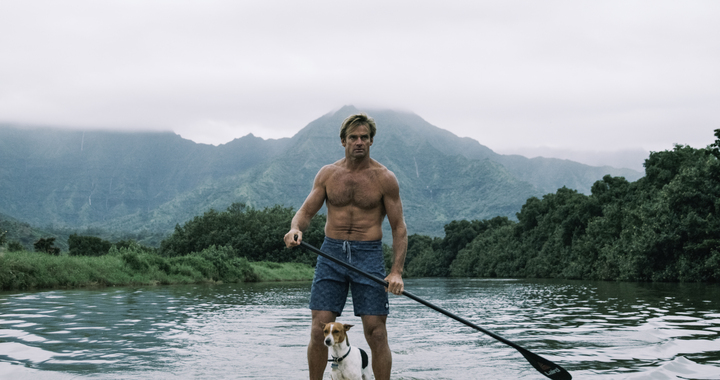
What’s the best you’ve ever felt in life?
You know what? I mean, other than just COVID and all the heavy stuff that’s going on in the world right now, just lately in my life I’ve felt the most balanced. My family, my relationship with my wife, my relationship with my children, my relationship with my friends, I mean, everything is in a nice place.
Maybe I’m just trying to worry less about things, or maybe just be more thankful about other things. It’s the most cultivated that I’ve been in my existence, given all the different facets of life. Other than the whole world being upside down.
What’s the most scared you’ve ever been on a surfboard?
The list is long. But I don’t know, maybe there’s a mechanism that blocks it out, so that it doesn’t have that kind of power. I’ve had a lot of different types of fearful experiences surfing. I could look back at the Tahiti wave, the Millennium Wave of 2000 and be like, “I was scared in the middle of that ride.” But then I could look back at getting annihilated at Jaws. I’ve been attached to a flowboard with snowboard boots at the bottom of the ocean, like a sea anchor, wondering if I’m going to get to the top. I just have had so many different kinds of scary moments. And sometimes I think I have a pretty good skill at forgetting them.
I think that’s probably pretty important, given your chosen career.
It’s a little bit like when I’m hurt, I’ll just go back out and try to surf again, even when I’m really hurt. I can be severely hurt, and I’ll go. It has to hurt so bad that I can’t actually do it. I’m always trying to get back on the horse as soon I can. But if I had too good a recollection or if I had scary moments that had that much power, it might inhibit my performance. It probably has in the past, but the mind just goes, “Yeah, no, we’re going to block that out.” It might be a learned skill. Maybe I just have a bad memory. Maybe I’ve had so many that I’ve gotten a little bit better at forgetting.
Then what’s the most scared you’ve ever been in life, off a surfboard?
I’ve had some other times that I thought I was going to die, but I think the scariest moments are just when I worry about my kids.
I remember one time, my youngest daughter had a bronchial infection, and she almost stopped breathing and I had to rush her to the hospital. She turned blue. I’d say that was probably the most scary thing that I can remember.
What was the genesis of the strap-in concept in the early ‘90s?
The combination of two things: When foot straps came into windsurfing, it revolutionized windsurfing, and also being connected in snowboarding. Being connected changed the performance immensely in both those situations.
I felt connection was a part of just an evolution in certain aspects. Obviously, aerials and flipping your equipment around is a little different when you’re holding onto it. But going fast is where a lot of my interests go. So the faster you went, the more important it was to be attached.
You pioneered tow-in surfing. It was controversial, but over the years it’s becoming much less so. Can you tell me as a flashback refresher why it was a contentious concept, and how that detraction made you feel?
I guess that the only excuse that people could truly find was that we were using a motorized vessel — that we were using a machine to help us get past a barrier. We weren’t manually paddling into the waves. So in that, there was, “Okay, that doesn’t count because you’re using a machine,” kind of thing, which I never really fully understood because we use surfboards to help us ride a wave, and that’s definitely a mechanism.
Honestly, I think that people’s negative energy towards it gave me motivation. Some people were saying, “Hey, you’re not a purist and this is what we do.” I think that’s offensive, to have somebody try to say that you’re not a purist if you don’t just surf to surf. And when you’re doing something different, I don’t think people like change.
So strap-in, tow-in, foilboarding and even, to some extent, the GolfBoard all seem to be about expanding the amount of surfable area on our planet. Where is it you want to go? What is it you want to get out of surfing now?
Now, I’m into foiling. Foiling has bigger, higher, further, faster. Foils have expanded the potential surfable conditions. Foils have created an opportunity to surf in so many different ways, that it’s just expanded the rideable potential exponentially.
We’re still just learning what the foils are capable of doing. It took a world that had limited surfing breaks with maximum surfers, and expanded it into a world of no surfers and an unlimited amount of breaks.
And that’s the world I really want to live in. I like that world. I have other aspirations as well, but right now, I’m completely engulfed in foiling, and what’s foilable? Where can we foil? How can we foil? All the different aspects of it, and that doesn’t seem to be letting off very quickly.
Is there a dream wave right now?
Maybe dream situations. I think there are dream situations, because a wave is almost limiting. Peak conditions and topography — there are all these factors now. But the dream is to get on something, a swell, a wave, a tidal bore, whatever, and maximize distance and time.
We’ve been able to spend some time in Peru the last few summers, and we’ve been riding waves for seven minutes.
So it’s longer, and it’s bigger and faster. Each one of those has a goal in mind. But riding a 20-minute wave, a 30-minute wave. I mean, going 60 miles an hour on a wave. Those are interesting benchmarks.
We’re approaching 20 years on from the Millennium Wave in Tahiti. What’s your appraisal of that ride’s place in surfing history?
That was a clear benchmark that I’m watching influence a generation. I’m watching a generation of surfers that have been influenced by that ride. It’s a little bit like the four-minute mile, in the sense of, when you grow up and when you’re born, you know everybody’s [striving for] a sub-four-minute mile. That’s just what you do. So everybody who does that, does that. It’s like, that’s what they do. Before that, no one did it and no one was going to do it. So I look at it like it’s a benchmark that influenced a generation and their performances.
How well do you remember it?
I think I get help by seeing the pictures of it and the movies over the years. That probably helped my memory, probably better now than I did right after it happened. Maybe not quite. But I remember the day and the waves pretty well. That place in particular has a tendency to imprint you when you’re a lover of surfing.
Does surfing give you something you can’t get anywhere else?
I think that surfing, for me — you’re going to do a lot of things in your life, but there’s nothing else that I do that whenever I do it, I just lose all sense of self. I lose all sense of that thing you really can’t lose any other time. Surfing is just one of those places where … What do we say? “You are. It is.” You just detach from self, and just become part of a bigger thing. Part of the planet. Part of the universe.
I’m sure you could’ve made a mint endorsing an energy drink, but you went with coffee. Why?
It’s honest. I think you have a responsibility if you’re in a position where somebody wants you to endorse anything. I think your obligation should be that you believe in it, you use it authentically and it’s real to you.
I’ve been trying to walk that line and live that way the best I can. I can’t tell people, “Hey, do this or do that,” and then I don’t, and I don’t believe in it.
Of course, if you drink tequila and you’re endorsing tequila, well, that’s honest. I can respect that. It’s just, for me, that the most important part I have of who I am is to try to be honest.
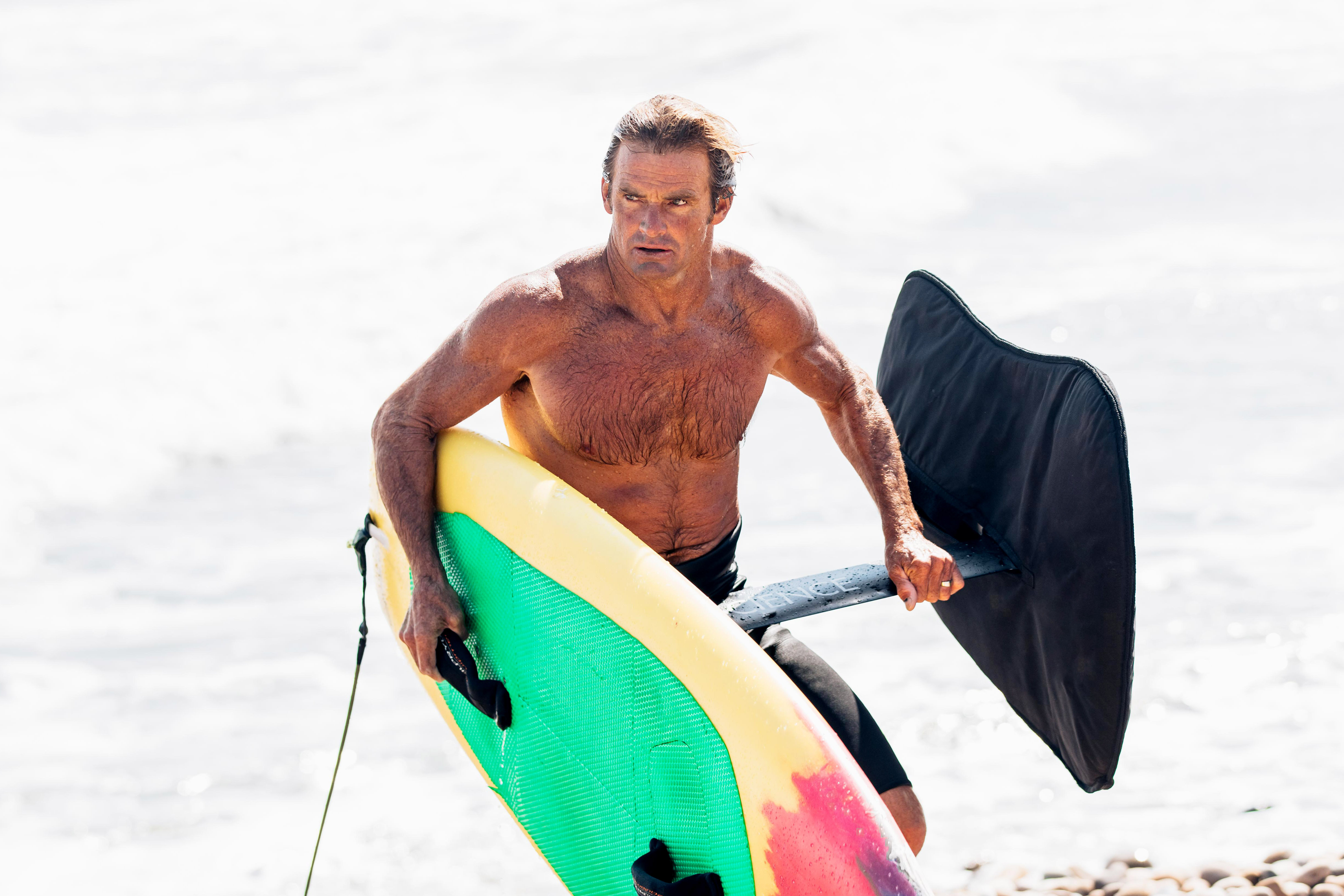
Obviously, you spent a vast amount of time in your life in the ocean, and you’re passionate about protecting it. What changes have you seen?
Unfortunately, as I always say, it’s sad that the ocean’s not upside down, that it’s not flipped. The view we have is so slight, that we don’t really understand all of what’s happening. If you saw all the stuff you dumped into the sea floating around in the air, you’d probably be a little more cautious about the way you treated it. We’re at a point where it can’t sustain that kind of burden.
We can’t just keep dumping all of our pollution into it, and then catching everything that’s in it that’s alive, and think that it won’t create some sort of repercussion. The ocean is hurting. The planet’s hurting because we’re beating it up pretty good.
Where is the most interesting place you’ve visited?
I had my 11th birthday in Afghanistan. That was an interesting place that had a monstrous impact on my life at that age. Afghanistan was severe. I had a fried egg and scoop of rice to celebrate and I tried to explain to a young Afghani kid, through a translator, how old I was and find out how old he was. He didn’t know what years were, and I had to learn about moons.
He was like 120 moons, which I think might be 10 years old. So I was 11 years and he was 120 moons.
Is there anywhere else you still want to go?
I’m always looking and I looked at Kamchatka a little bit ago. It’s on the Pacific coast of Russia right above Japan. It’s got little volcanoes but it’s where all the storms that we surf in Hawaii originate. The truth is, the places I want to go are more like situations I want to be in. I like hurricanes. I like big storms. I’m really drawn to going into those things. They’re kind of like living creatures.
And I imagine, we’re back to fear, right? As the inception of this desire?
Yeah … and the unknown. Because ultimate exploration is going into the unknown, and the biggest factor in that is fear. Doing the unknown, going into the unknown. Something about the unknown is scary, but somehow always very rewarding once you experience it. The known is not nearly as scary as the unknown.
What did you learn from your parents?
A lot of things. My dad taught me that if you’re wrong, you put your head down and take your punishment like a man. If you’re right, you stand up and take it to the end … or run. And then my mom taught me, if you can’t be true to yourself, you can’t be really true to anyone.
What have you learned from your children?
I’m learning how to tolerate my response to their behavior. It’s not perfect every day, but I’m learning how to listen. Listen and be steadfast.
How do you make love stick around?
Love? You maintain it. You nurture it. You cultivate it. You put effort into it. Make it important.
What’s something that you’ve kept with you through all these years?
I would say, my enthusiasm. I’ve retained it. I mean, sometimes it’s further apart when it comes out, but my enthusiasm.
What is a great and possibly uncomfortable question to ask somebody if you want the conversation to move past small talk?
Are you monogamous?
Who was the first person you ever remember admiring, who was not related to you?
I admired my stepdad. He wasn’t related to me, but then he married my mom. So then he was related to me. So that doesn’t count. But let me see. There was a man named Warren Harlow. He’s a nuclear physicist, but he surfed. He used to surf Pipeline and he had a very nice family. He worked really hard and he was an incredible waterman. He seemed to just have so many skills. He ate well. He took good care of himself. He was a great dad. He was highly intelligent. He did incredible things in the water.
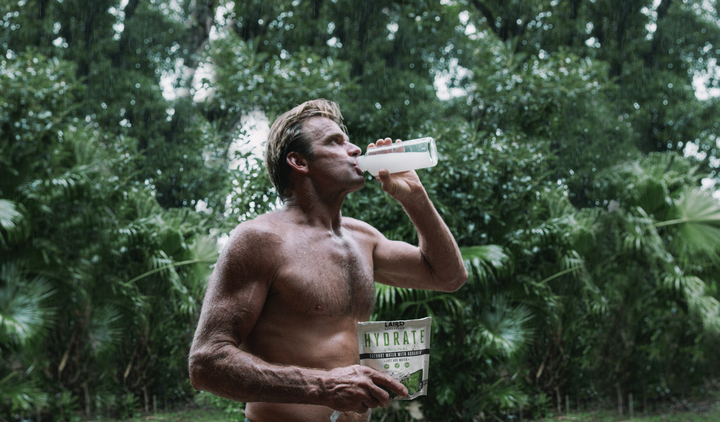
What do you think is the key to sustain motivation in a long career?
It’s not always pleasurable to be driven to no end. But I would say a great quote that I love that could sum this up a little bit: “Never let your memories be bigger than your dreams.” So I think if you’re dreaming big and you continue to dream, then you’ll be driven to train hard and have a long career.
But if you feel that your greatest performances are behind you, it’s going to be hard to be motivated, and that connects with enthusiasm. But I think, sometimes, that internal mechanisms are something you’re born with and that relentless pursuit and drive can be something that you, in some cases, could be cursed with.
What do you fear most about the future?
Back to our greatest fear is the unknown. Unknown. The fear of the unknown. I heard a great quote the other day, that, “Worrying is just ridiculous because we don’t know enough to worry.” So how could we even worry? We’re not smart enough to even begin to worry.
But what am I afraid of about the future? What planet my girls are going to live in. How are they going to be? Are they going to be okay? What’s going to happen to them? Who are they going to be with? Or, what are they going to do? All of it. Just all those questions that your brain throws at you when you’re running the scenarios.
What is your worst habit?
Probably my attitude.
What do you mean about your attitude?
It has to do with the nature of the pursuit of what I do, and then needing a certain situation to provide me with an opportunity, and then just the arduous process of waiting for that to happen.
But it’s that I could be better, maybe at the patience of waiting. So that’s what I talk about when I say, “My attitude.”
Do you have a favorite curse word?
I’ll tell you a story about cursing. So at one point, I guess I was probably swearing a little bit too much, and I decided I was going to watch my cuss words. So I had this word that I thought I invented. Ufa was the word. So I would say it when I wanted to use a curse word.
Then I was at an airport one time, and I was standing next to this woman. I said the word, and then she looked at me real surprised, like, “Whoa, what was that? What’d you say?” And I said, “Oh, well, I’m just trying to work on my swearing. So I say this word.”
And she came back, “That is the single worst word that you could say in Samoan.” So I realized at that point curse words are just anything that evokes that sound, that makes you feel good. But when you hear people cuss a lot, it’s hard to sometimes take their other things they say seriously. So I’m conscious of my swearing, but the one I probably use the most is “shit.” I don’t know if that’s a cuss word … except for the way I say it, I guarantee it is.
What words do you want on your tombstone?
Good human.
If you could only surf one more set, where and with whom?
Oh I need a wave that doesn’t end … in the rings of Saturn. Let me see … I think I still haven’t found the spot yet. I’m looking right now. Just one of those places offshore, where it’s just you and your friends. It’s not even a spot that people even surf. But when it’s 80 feet, it’ll be just you and your buddies, and you’ll be going round and round.
I’d like to surf with Terry, Benny, Randall and Lucca. Just a couple of the boys.
Whether you’re looking to get into shape, or just get out of a funk, The Charge has got you covered. Sign up for our new wellness newsletter today.
